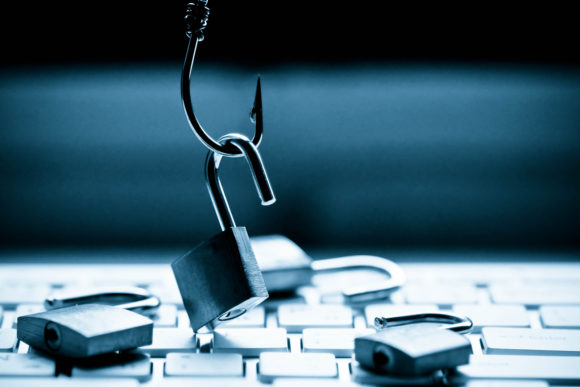A $1.7 million email phishing fraud that included phone calls with a fake lawyer and an intervention by a Wells Fargo fraud investigator is still a fraud and Ironshore Indemnity is liable for the claim, a split panel with the 11th Circuit Court of Appeals in Atlanta ruled.
The 11th Circuit affirmed the district court’s ruling that language in Principle Solutions Group’s commercial crime policy, which limited liability to losses “resulting directly from” fraudulent instructions to a financial institution, did not take Ironshore off the hook.
Principle was scammed in July 2015 through an email purporting be from managing director Josh Nazarian to controller Loann Lien. The email said that Principle has been working on a “key acquisition” and asked Lien to wire the money as soon as possible. The email instructed Lien to seek instructions from “attorney Mark Leach” with a London law firm, Bird & Bird.
An email from someone purporting to be Leach followed five minutes later. He instructed Lien to wire the money to a bank in China. Later, the man who called himself Leach told Lien that Nazarian and approved the transfer.
A Wells Fargo fraud prevention investigator called Lien to verify that the wire transfer was legitimate. Lien called Leach to verify how he had received instructions. The imposter said he had spoken with Nazarian on the telephone. Lien relayed that information to Wells Fargo, which released a hold that had been placed on the wire.
Lien learned that she had been hoodwinked when she spoke to Nazarian the next day. The company promptly reported the fraud, but law enforcement was not able to recover the money.
Ironshore argued that that the loss didn’t result from the fraudulent instructions in the email from Lien’s boss; there were several emails and telephone calls that eventually led to the decision to transfer the money. While the policy covers losses caused by “fraudulent instructions,” Leach discussed details to Lien after the initial email and to Wells Fargo after the bank held the transaction. Ironshore contended both were intervening events between the instruction and the loss.
“Without these multiple steps, no loss could have possibly occurred,” attorney Philip Savrin with Freeman Mathis & Gary said in a court filing.
The panel majority rejected what it called Ironshore’s “divide and conquer” approach.
“Nothing in the policy language warrants the assumption that the two emails could not be part of the same fraudulent instruction,” the panel said in an opinion written by Judge William Pryor.
The panel also was not persuaded by Ironshore’s argument that because of those several intermediate steps, the loss did not “directly result from” the fraudulent instruction.
“In short, the ordinary meaning of ‘resulting directly from” requires us to determine whether the fraudulent instruction here proximately caused Principle’s loss,” the opinion says.
Judge Gerald Bard Tjoflat dissented. He said that arguably Wells Fargo’s actions “short-circuited” the causal connection between Nazarian’s email and Principle’s loss.
He noted that a Wells Fargo fraud protection investigator has sent Lien an email that included information about imposter fraud and contained tips on how to avoid acting on fraudulent instructions.
“Whether the Nazarian email proximately caused Principle’s loss or just set the stage for that loss to occur is a jury question,” Tjoflat concluded.
Was this article valuable?
Here are more articles you may enjoy.


 Charges Dropped Against ‘Poster Boy’ Contractor Accused of Insurance Fraud
Charges Dropped Against ‘Poster Boy’ Contractor Accused of Insurance Fraud  One out of 10 Cars Sold in Europe Is Now Made by a Chinese Brand
One out of 10 Cars Sold in Europe Is Now Made by a Chinese Brand  These Five Technologies Increase The Risk of Cyber Claims
These Five Technologies Increase The Risk of Cyber Claims  UBS Top Executives to Appear at Senate Hearing on Credit Suisse Nazi Accounts
UBS Top Executives to Appear at Senate Hearing on Credit Suisse Nazi Accounts 